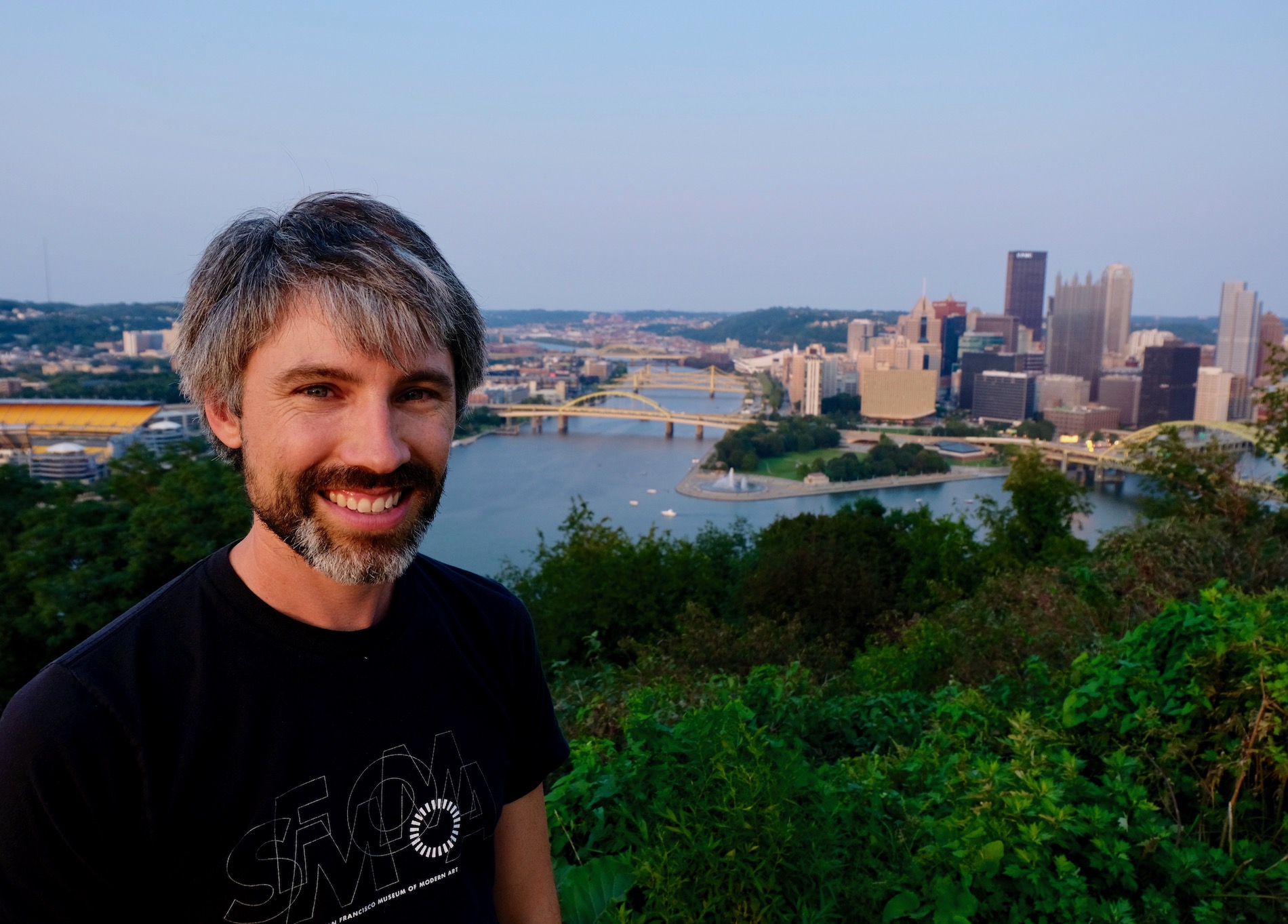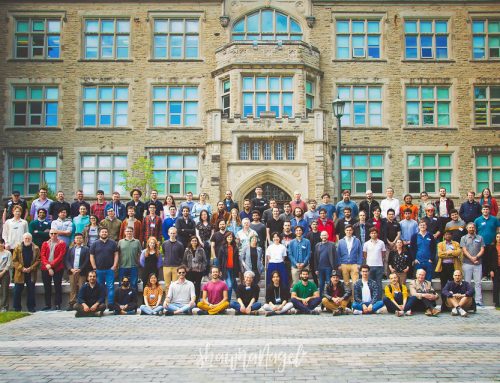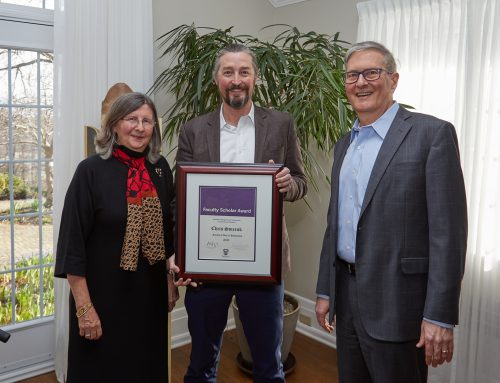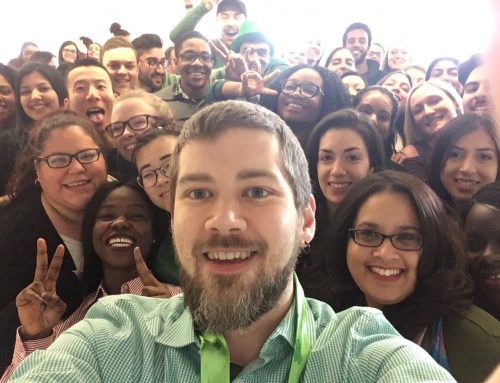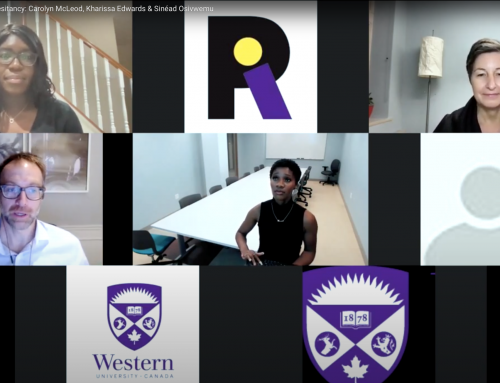We’ve welcomed three new postdocs to the Institute over the past couple months. Please join us in welcoming them & be sure to visit their profiles to learn more about their research!
- Kerry O’Neill and Michael Montess will both be working with Maxwell Smith and contributing to his research project, “Ethical Pathways for Therapeutics and Vaccine R&D in the Context of Public Health Emergencies of International Concern: An Analysis of the 2013-16 Ebola Outbreak to Rapidly Inform COVID-19 R&D”. Both have interests in bioethics, social and political philosophy, and public health. O’Neill is also interested in topics related to universal basic income and its potential for addressing gender and health inequities in Canadian society. Montess is also interested in the ethics and history of HIV/AIDS, specifically pre-exposure prophylaxis (PrEP) as HIV prevention, as well as LGBTQ2S+ health more broadly.
- Jacob Neal will be supervised by Eric Desjardins. His research interests are in philosophy of the molecular life sciences – biochemistry, biophysics, and structural and molecular biology. In his work, Neal examines epistemological, methodological, and historical questions that arise in these sciences. His primary research project analyzes recent changes in representations and explanations of proteins, and he is developing an account of a novel type of dynamic explanation of proteins. Neal also has ongoing work on scientific methodology, in which he assesses various strategies, such as reduction and unification, used by scientists to connect biological knowledge from different perspectives.
Other news from our members is listed below alphabetically.
Emily Adlam provided commentary about the nature of time in a recent article published in New Scientist, What the thermodynamics of clocks tell us about the mysteries of time.
Michael Barnes, along with his co-author Luvell Anderson (Syracuse University), published their entry on ‘Hate Speech’ in the Stanford Encyclopedia of Philosophy, the highly-respected, open-access online encyclopedia.
Rotman alumnus Yann Benétreau-Dupin was promoted to Division Editor, Behavioral and Social Sciences for the journal PLOS ONE published by the Public Library of Science. Congratulations, Yann!
Rob Corless gave the talk “Émile Mathieu and antisecularity in perturbation” in the session of Canadian Society for History and Philosophy of Mathematics at the Canadian Mathematics Society Winter Annual Meeting 3–5 December; this session was organized by Nic Fillion and Maritza Branker. He also gave the talk “Some of my favourite problems to use when teaching with technology” at the Asian Technology Conference in Mathematics 13-15 December, and the invited talk “Computational Discovery with Newton Fractals, Bohemian Matrices, & Mandelbrot Polynomials” (joint work with Neil J. Calkin and Eunice Y. S. Chan) at that same conference; and he gave the talk “Hybrid symbolic-numeric computation for Bohemian matrices” in the Computational Mathematics Session at the Australian Mathematical Society annual meeting 7-10 December.
Corless’s paper “Structural analysis of matrix integration operators in polynomial bases” with his former PhD student Amir Amiraslani and others has now appeared in the Banach Journal of Mathematical Analysis. His open access paper “Computation and application of the Mathieu functions: a historical perspective” has just appeared in SIAM Review. His paper “Teaching Programming for Mathematical Scientists” will shortly appear in the Springer volume Mathematics Education in the Age of Artificial Intelligence, edited by Phillipe Richard and others.
Corless was the “opponent” for the PhD thesis of Parikshit Uphadyaya (KTH Stockholm) on December 17th; the thesis was about nonlinear eigenvalue problems that depend on the eigenvector.
Michael Montess published “Contextualizing Risk in the Ethics of PrEP as HIV Prevention: The Lived Experiences of MSM” in The Kennedy Institute of Ethics Journal in December.
Jevonne Peters (Jevi) was recently invited to join the American Council of Learned Societies (ACLS) to serve as a society scholar in a program titled Intention Foundry, focusing on Inclusion, Diversity, Equity, and Anti-racism in academia. The Intention Foundry consists of a series of institutes centered on aspirational projects proposed by the next generation of scholars. The Intention Foundry aims to not only disrupt the status quo, but to set the agenda for changes that will create a more just academy in the 21st century. This initiative is backed by a $2 million grant from The Andrew W. Mellon Foundation, over three years (2021, 2022, 2023).
Rotman alumnus Jamie Shaw will give an invited talk at the upcoming Aarhus Institute of Advanced Studies Conference, to be held June 1-2, 2022, in honour of the 100th year of Thomas Kuhn’s birth, and the 60th anniversary of the publication of The Structure of Scientific Revolutions.
Maxwell Smith was a co-author on a paper published in The Lancet, titled “Governing the Access to COVID-19 Tools Accelerator: Towards Greater Participation, Transparency, and Accountability.”
On December 7, Maxwell Smith gave a talk to the Pan American Health Organization (PAHO) alongside Ruth Faden and Ezekiel Emanuel on ethical issues associated with COVID-19 vaccination programmes.
Luke Stark has been awarded an Insight Development Grant from the Social Sciences and Humanities Research Council (SSHRC) for his project, The Political Economy of Emotion AI. The grant will allow Stark to study artificial intelligence systems designed to analyze human emotions and develop a framework to guide the design and best use of these technologies. Learn more about his project in the article, Can machines really read our emotions? Funding secured for research into the usefulness of emotion AI, on the FIMS website.
Pictured above: Jacob Neal pictured overlooking the city of Pittsburgh, and Michael Montess canoeing in Manitoba.

